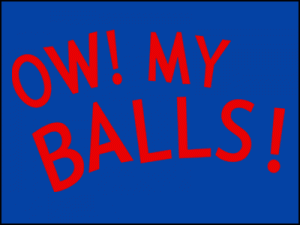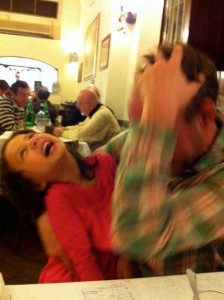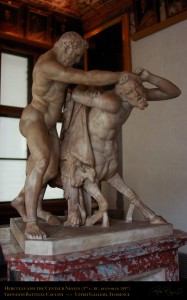 So, there’s this kid in Sasha’s preschool class. Let’s call him David. He’s a sweet 3-year-old, blond and smiling. In the evenings, he’ll run to hug any and all parents coming to pick up their kids. Very affectionate—likable, even.
So, there’s this kid in Sasha’s preschool class. Let’s call him David. He’s a sweet 3-year-old, blond and smiling. In the evenings, he’ll run to hug any and all parents coming to pick up their kids. Very affectionate—likable, even.
On Friday, when I went to pick up Sasha, David came running up to me, as usual, wearing a construction worker’s costume: hardhat and reflective orange vest. Then he punched me in the balls—hard. Well, hard for a toddler, hard enough that I instinctively yelled “Oof!” and covered my grapes with my hands. Hard enough that Sasha’s teacher noticed something had happened. “He punched me in the balls” is what I wanted to say, but somehow that seemed unacceptable. Also, Sasha’s teacher doesn’t speak English 100 percent perfectly, so I wasn’t sure she’d understand me.
But then David kept trying to do it again, and I had to fend him off. This wasn’t difficult. He’s only 3. Eventually, he left me alone.
As I bundled Sasha into her winter gear and left, I had only one thought: Poor David’s father!
***
Sunday it was 16 degrees out, and I was carrying Sasha over to our friend’s house for some Burmese food. At the corner of Third Avenue and Bergen Street, she said, suddenly, apropos of nothing, for the first time I’d ever heard, “That’s dis-gus-ting!”
Then, silently, unrelatedly, I burped. And it was as if Sasha had predicted this very future.
“It smells like doggie food!” she said.
Thing is, it did, kind of.


